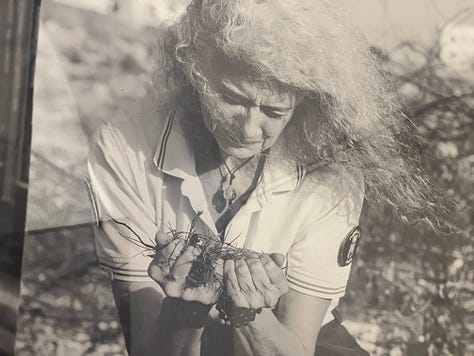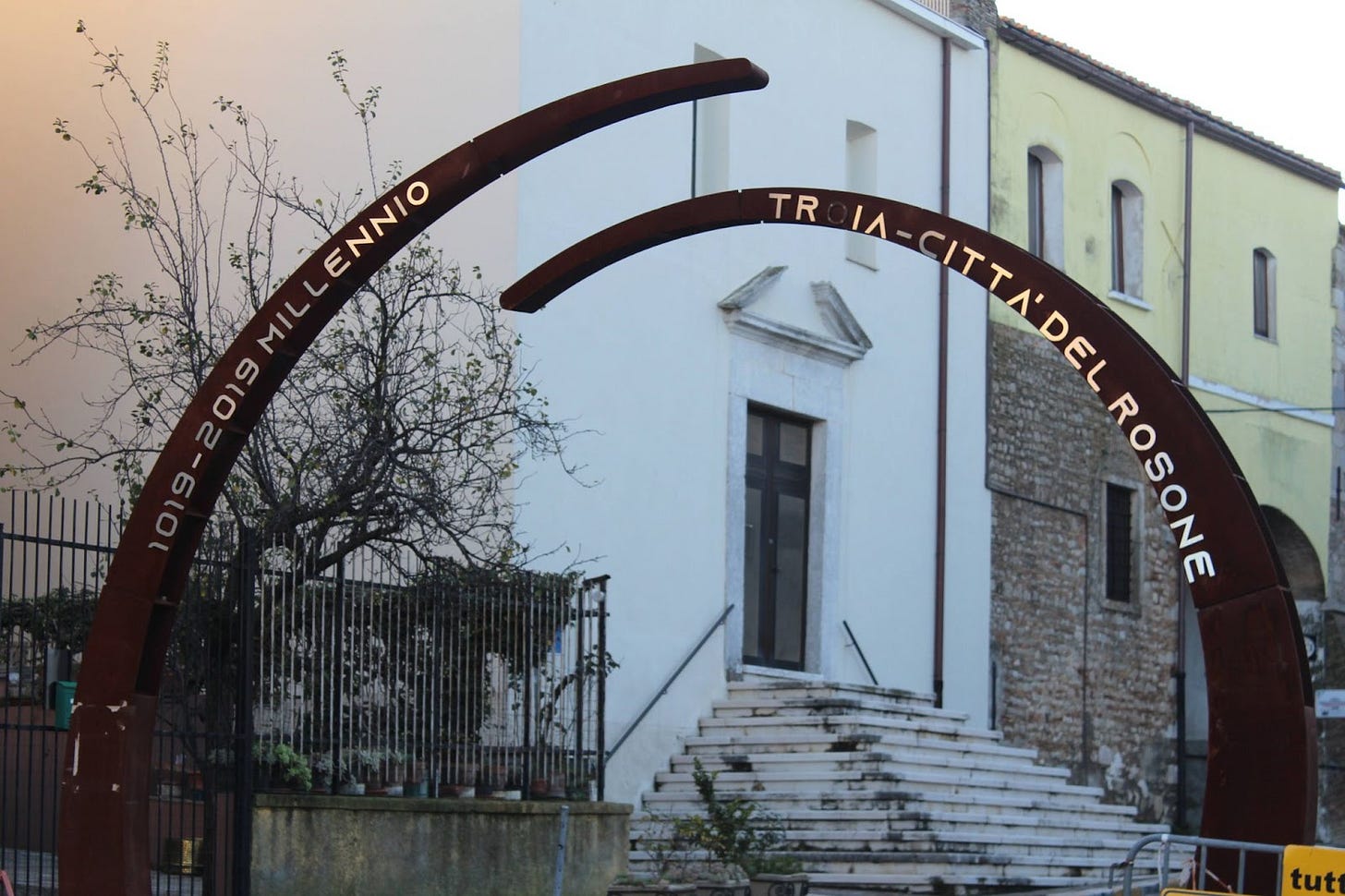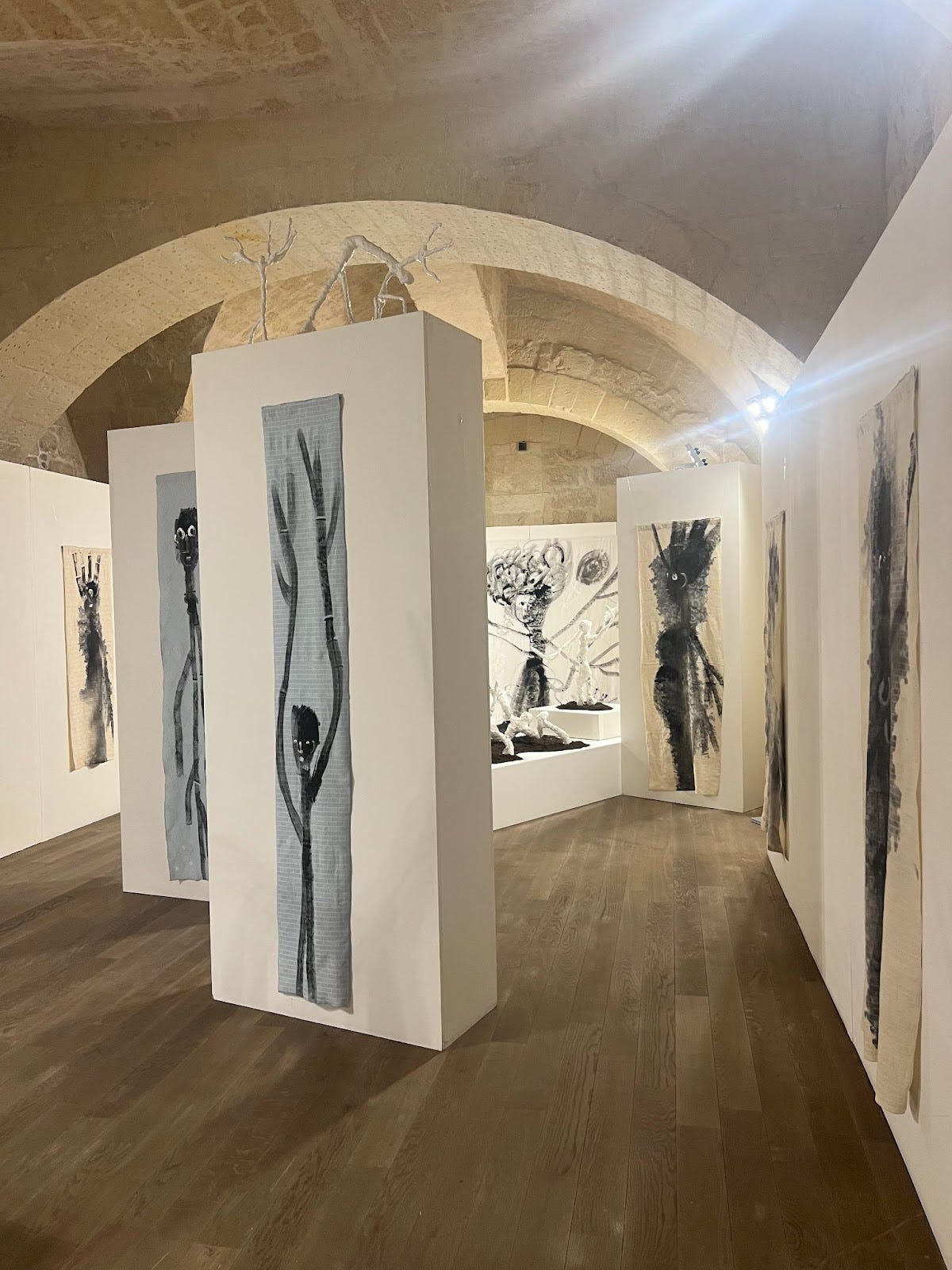“Ghosts point to our forgetting…these ghosts are the dead trunks of centuries-old olive trees, which remind us that we live in an impossible present - a time of rupture, a world haunted with the threat of extinction.” – János Chialá
I first learned about the widespread loss of Puglia’s olive trees on the internet. I was sitting in my temporary apartment in Lecce, one of the southernmost cities in Puglia, reading about an exhibit focused on the rapid changes the local olive groves were experiencing after many, many centuries of abundant olive oil production. I was disappointed to learn that both the exhibit and the olive trees were gone by the time I read about them. The exhibit had closed a few weeks prior; the trees had been dying for years.
Around the time the exhibit closed I was in Catania, Sicily. It was my first day in the city and while I don’t usually take random men up on their offers to buy me coffee, something about Usman’s invitation made me say yes. In a language that neither of us spoke fluently, through the haze of cigarette smoke and reggae music, I asked my new Senegalese-Italian friend what brought him to Catania. “Le olive,” he said. “Lavoro.” Work. Of course. What else drives people to leave their homes for new lands?
Le olive. As he scrolled through photos of his work in the olive groves, my mind wandered to 2021. I had just arrived in Troia, one of the northernmost towns in Puglia and the hometown of my maternal grandmother’s parents, and I was starving. Puglia is the birthplace of cavatelli – my favorite kind of pasta – so I ordered a plate of it with a glass of local wine and retrieved the Tucci family documents my grandma had given me from my bag. Her father–and presumably his father and his father and his father– tended olive groves for Puglia’s robust olive oil industry.
“Il mio bisnonno anche lavorava con le olive,” I told Usman in very basic Italian. My great-grandfather also worked with the olives. He nodded nonchalantly, unfazed. But there was something meaningful to me in that unexpected coffee date, something that still sparks wonder in me. How is it, I asked myself, that my great grandfather the olive farmer left Troia to find higher paying work in the coal mines of western Pennsylvania, gave life to twelve children, the twelfth of which had four children, one of whom gave birth to me, who said yes to an invitation for coffee from a Senegalese man who carries on the labor of my ancestors? Maybe it was just one of life’s uncanny coincidences; maybe it was something deeper pulling me into the sacred world of olives.
So by the time I walked into Museo Storico Cittá di Lecce, olive trees were very present in my spirit. When I stepped into the second gallery–beyond the grand Italian courtyard and through the vast white doors with the signage “Bosco di Lecce” (“Forest of Lecce”)–I felt a chill. Odd, spooky paintings stared at me. My heartbeat dropped into my stomach and I felt its pulse, methodical, just under my breastbone. I was the only person in the room, but I wasn’t alone.
It turns out there was another exhibit about the olive trees, and I’d stumbled upon it. And then stumbled through it. Slowly, with a heaviness in each step, I took in the overwhelming nature of the loss that Puglia’s olive groves have undergone in recent years due to a vicious bacterium called Xylella.






I saw my great-grandfather and the generations of ancestors before him in these striking photos of olive farmers mourning their groves. And while I went to Italy, in part, to consider what my family has lost in his choice to migrate to America, I recognize now that loss is not only an experience of those who left. When my great-grandfather chose to step out of the olive groves and onto a ship headed to New York City, Puglia had only been part of Italy for about 50 years. “Italy” is just the current empire on a peninsula that has been consumed by imperial rule for millennia. And with this particular form of empire came capitalism and industrialization: the underlying drivers of the decimation of olive trees and the drivers of my family’s incentive to leave and disconnect from our ancestral land.
I feel these various forms of loss in my body. I grieve the possibility that Usman could be part of the last generation of people to tend olive groves on Italian soil. I grieve the brutal, genocidal destruction of Italian olive trees’ relatives in Palestine. I grieve the widespread presence of cheap, tasteless olive oil in big plastic bottles. I grieve the prevalence of frozen food and processed meat and pesticide-ridden vegetables in my family members’ big American kitchens. I grieve the hormonal imbalances and obesity and allergies and heart disease that spawn from these ingredients.
At the same time, I feel hope. I swell with possibility at the presence of “Slow Food” demarcations on menus across Italy. My heart warms as I return to New York and indulge in the tastiest pot of my ancestral marinara sauce I’ve ever made. Curiosity greets me after I teach my mom the Italian phrase piano, piano (slowly, slowly) and, when she replies “not the Italian Americans!,” we acknowledge that’s something we’ve lost to white culture. I tear up at pictures of my niece and nephew making my 90-year-old grandmother laugh. These are the elements of care culture that are seeding futures through and beyond loss.

When we confront and grieve the tremendous loss we face under modern empire, what possibilities are revealed? How might we undermine the violence of empire through communal production of a care-based culture? What are the elements of care culture that support you and your family to sustain hope? I would love to hear your responses in the comments.
With care,
Alyssa

RESOURCE SHARE
To learn more about the olive tree decay in Puglia (and specifically Salento, a cultural region of southern Puglia that includes Lecce), I recommend this screening of a symposium featuring photographer and journalist János Chialá.






